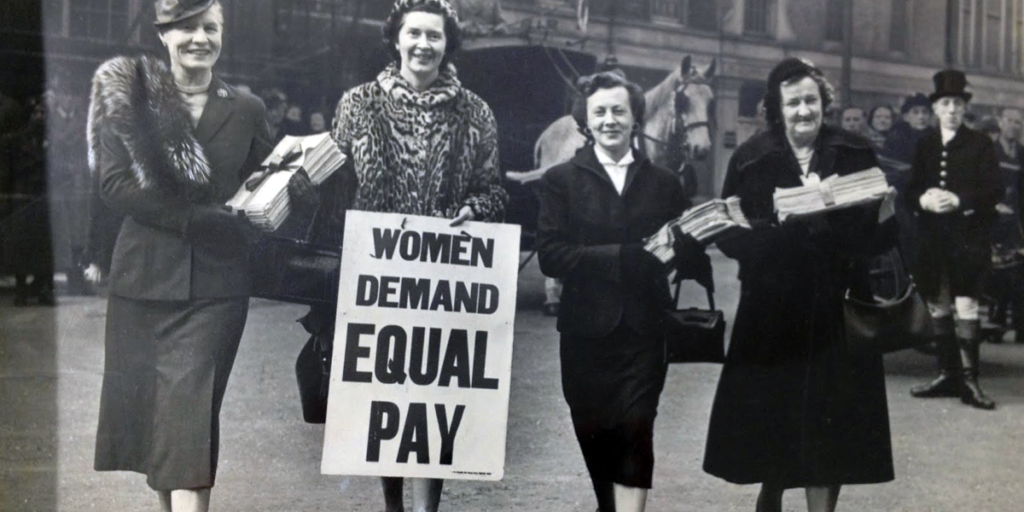Doug Jones co-sponsors legislation to ensure equal pay for women

Newly elected U.S. Sen. Doug Jones is calling for an equal pay law. On Tuesday, the Democrat announced he will co-sponsor legislation designed to address the pay gap between men and women. S.819: The Paycheck Fairness Act, would strengthen the Equal Pay Act of 1963 and guarantee that women can challenge pay discrimination and hold employers accountable. “Despite making up half the workforce, American women still routinely face obstacles to receiving the pay and benefits they’ve earned,” said Jones. “We have a duty to make sure that women are compensated fairly for the jobs they do. I’m proud to co-sponsor the Paycheck Fairness Act and I look forward to working with my colleagues to see this common-sense legislation passed.” According to the Institute for Women’s Policy Research (IWPR), five decades after the Equal Pay Act of 1963, women continue make an average of 80 cents for every dollar earned by a man. The pay gap is even wider for women of color, with African American women making 63 cents on the dollar, and Hispanic women making only 54 cents, on average, compared with white men. The Paycheck Fairness Act would strengthen and close loopholes in the Equal Pay Act of 1963 by holding employers accountable for discriminatory practices, subject to the same remedies as discrimination based on race or national origin. The bill endeavors to end the practice of pay secrecy by easing workers’ ability to individually or jointly challenge pay discrimination, and strengthening the available remedies for wronged employees.
Trail translator: They’re all talking “income inequality”

Of all the buzzwords and phrases popping up early in the presidential campaign, “income inequality” must be close to the top of the list. It’s not just Democrats insisting that the nation must deal with it firmly and fast. While Hillary Rodham Clinton and new primary opponent Sen. Bernie Sanders are hitting the idea hard, Republican candidates, too, are playing up the notion that people at the bottom of the economic ladder are getting a raw deal while the rich get richer. Since you’re sure to hear a lot more about income inequality during the next 18 months, here’s a closer look at what it means, where it came from and what the candidates want to do about it. • • • Definition, please In a nutshell, economic inequality refers to the yawning gap between the income of the richest Americans and everyone else. No one disputes that the gap exists, although there is debate about its size. There are all kinds of subtexts associated with this idea, among them: stagnating middle-class incomes, increasing economic power for the privileged few, barriers to upward mobility for the poor and a culture of cronyism in Washington that protects the well-connected. And that churns up feelings of envy, outrage, frustration and despair for candidates to tap into as they try to show they understand the economic angst of the middle class. • • • Origins The prominence of the issue has been building, off and on, for years, as the share of total income and wealth claimed by the richest Americans has grown. Incomes for the highest-earning 1 percent of Americans rose 31 percent from 2009 through 2012, after adjusting for inflation, according to data compiled by Emmanuel Saez, an economist at University of California, Berkeley. For everyone else, it inched up an average of 0.4 percent. The Occupy protest movement of 2011 and 2012 jump-started a global conversation about the wealth gap, with the rallying cry of “We are the 99 percent.” And everyone from Pope Francis to President Barack Obama picked up on it. In 2013, Obama called economic inequality “the defining challenge of our time.” • • • Look who’s talking Just about all the 2016 candidates are chattering about it. And when candidates describe the problem, it’s sometimes hard to distinguish Republicans from Democrats. See if you can guess who’s sounding off here: “The top 1 percent earn a higher share of our income nationally than any year since 1928. The people who have been hammered … are working men and women.” “While the average person is working longer hours for lower wages, we have seen a huge increase in income and wealth inequality, which is now reaching obscene levels.” “The economy is booming for people at the top. It is not booming for the bottom 90 percent of the workforce in America. The bottom 90 percent, which is most of America, has had stagnant wages for 40 years.” “The deck is still stacked in favor of those already at the top. And there’s something wrong with that. There’s something wrong when CEOs make 300 times more than the typical worker.” “Wage stagnation is happening at a time when the cost of everything is going up dramatically. And it’s not just that the cost of everything is going up, we have expenses we didn’t used to have.” “The policy aim of government absolutely should be that government should not contribute to income inequality.” Answers: 1. Republican Sen. Ted Cruz of Texas. 2. Sanders, a Vermont independent who’s running as a Democrat. 3. Republican Mike Huckabee, former governor of Arkansas. 4. Clinton. 5. Republican Sen. Marco Rubio of Florida. 6. Republican Sen. Rand Paul of Kentucky. • • • The solution? There will be huge debate on this over the next year and a half, and Republicans and Democrats offer far different solutions. In general, Republicans like to stress upward mobility — giving those at the bottom more opportunity to move up — rather than taking something away from those at the top. “The American people tend not to be envious people,” says Mike Needham, head of the conservative Heritage Action for America. “People are worried about their opportunity to succeed.” Democrats are inclined to look at increasing taxes for those at the top to allow government to do more for those below. “It’s very difficult to do much about the middle class and the poor without tapping some of the wealth and income at the very top, or at least changing the structure of the economy so that so much wealth and income don’t percolate upward,” says Robert Reich, who was Bill Clinton‘s labor secretary. Most of the candidates are still fleshing out their economic proposals. But they’ve already thrown plenty of ideas in the mix, circling back to classic debates over taxation and the proper role of government. Sanders wants to make the wealthy pay more taxes. Rubio’s pushing a big tax cut to spur growth. Clinton has criticized excessive CEO pay and wants to raise the minimum wage. Cruz wants a “simple flat tax.” Paul pushes “economic freedom zones” offering lower taxes in distressed areas. Former Florida Gov. Jeb Bush wants to give people more opportunities for “earned success.” Christie wants to cut income and corporate tax rates while changing deductions and credits. • • • Odds anything will change? Obama said Tuesday he hopes growing awareness of inequality will help bridge the ideological divide over how to address it. At the same time, progressive Democrats who want to close the gap released a wide-ranging policy agenda, with Sen. Elizabeth Warren of Massachusetts saying it was time to fight those who “want the game to stay rigged.” Skepticism abounds, though. Sanders questions whether Clinton or any of the Republicans are ready to take on the “big-money interests who control so much of our economy.” Paul thinks Democratic policies make income inequality worse. Carly Fiorina, the former technology executive who recently joined the GOP nomination race, says
Women, men and “office housework”
A recent story in the New York Times co-authored by Sheryl Sandberg and Adam Grant sheds some new light on something probably familiar to office workers in Alabama and across the country: the unequal distribution of often little-appreciated work like stocking snacks, counseling junior colleagues and planning office birthday parties, which Sandberg and Grant found were far more likely to be assigned to women employees than to their male counterparts. Write Sandberg and Grant: “This is the sad reality in workplaces around the world: Women help more but benefit less from it. In keeping with deeply held gender stereotypes, we expect men to be ambitious and results-oriented, and women to be nurturing and communal. When a man offers to help, we shower him with praise and rewards. But when a woman helps, we feel less indebted. She’s communal, right? She wants to be a team player. The reverse is also true. When a woman declines to help a colleague, people like her less and her career suffers. But when a man says no, he faces no backlash. A man who doesn’t help is “busy”; a woman is “selfish.” … Someone has to take notes, serve on committees and plan meetings — and just as happens with housework at home, that someone is usually a woman. The article – which focuses on a study conducted by the American Psychological Association – underscores issues that go beyond the vaunted wage gap between men and women, currently estimated at about 78 cents on the dollar in favor of males. How to change this deeply entrenched dynamic? The answer is concrete, if complicated, according to the pair of co-writers. It comes down to individual responsibility. Men can help solve this problem by speaking up. In our previous article, we observed that men have a habit of dominating meetings and interrupting women. Instead of quieting down, men can use their voices to draw attention to women’s contributions. Men can also step up by doing their share of support work and mentoring. At a recent event we attended, 30 chief executives gathered around a dinner table for a conversation about closing the gender gap. With an even mix of men and women in the room, we expected the office housework to fall to a woman. But the one person who took notes the entire time was the founder of the Virgin Group, Richard Branson.


